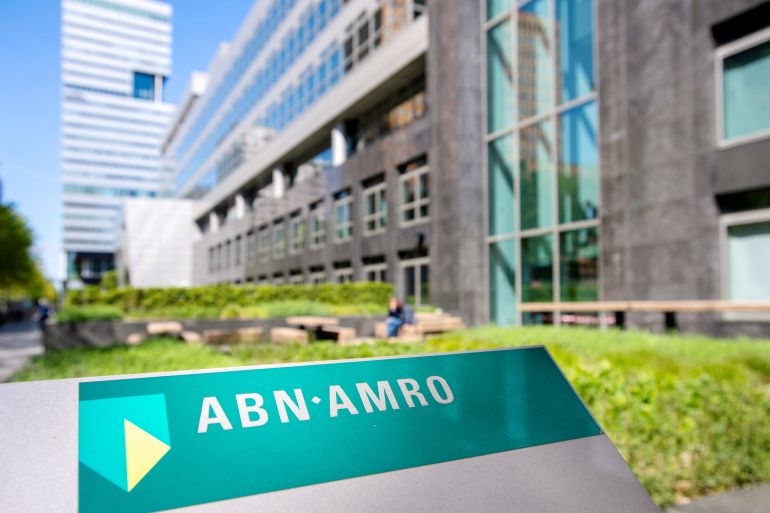Dutch bank ABN Amro apologises for role in slave trade
Apology comes after study finds some of the bank’s legal predecessors were involved in slavery activities in the past.

The third-largest Dutch bank, ABN AMRO, has apologised for its involvement in slavery saying the practice in the 18th and 19th centuries caused “untold suffering”.
The bank is one of the first Dutch private companies to apologise for its role in the Atlantic slave trade amid growing debate about a painful period in the Netherlands’s colonial past.
Keep reading
list of 4 itemsUK college seeks permission to remove slavery-linked memorial
Bonus edition: Slavery reparations, cartel wars, aerial photos
Plantation slavery, the first American dream
Research commissioned by ABN AMRO found some of its legal predecessors were involved in “plantation slavery and the trade in products that originated in slavery during the 18th and 19th centuries”.
“Slavery caused untold suffering, and ABN AMRO apologises for the actions and activities of these predecessors,” said in a statement.
One of its predecessors, Hope & Co, “played a pivotal role in the international slave economy of the 18th century”, ABN AMRO said.
“Not only were slavery-related operations a source of much of Hope & Co’s profits, the firm was also actively involved in the day-to-day business of plantations,” it said.
“Hope & Co was the largest financial and commercial company in the Netherlands at the end of the 18th century, and slavery-related operations formed a core part of its business,” said Pepijn Brandon, senior researcher of the Amsterdam-based International Institute of Social History.
“Decisions made in offices in Amsterdam and Rotterdam directly impacted the lives of thousands of enslaved persons,” Brandon said.
Another predecessor, Mees en Zoonen, brokered insurance for slave ships and shipments of goods harvested by enslaved people.
Abolished in 19th century
The Dutch were involved in slavery from the 17th century until it was abolished by the Netherlands in 1863, and many of Amsterdam’s financial elite had direct ties with it.
“ABN AMRO as it exists now cannot undo that period of its history,” the bank’s Chief Executive Robert Swaak said.
“ABN AMRO apologises for the past actions and activities of these predecessors and for the pain and suffering that they caused,” he said.
The bank’s apology comes as debate continues about the role of the Netherlands in its former colonies.
“Deep regrets” have been expressed by the Dutch central bank about the role many of its early directors played in the 19th-century slave trade.